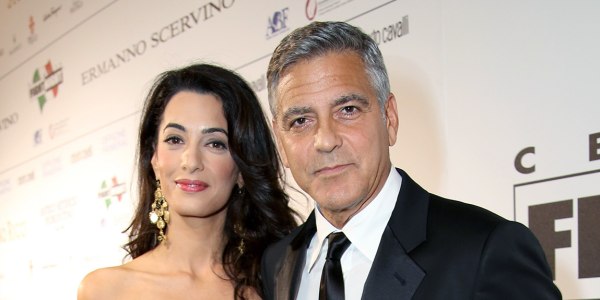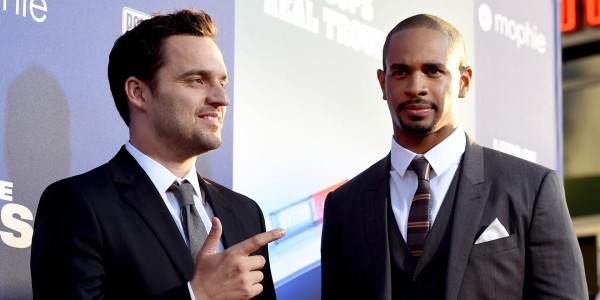Steven Soderbergh has enjoyed a Hollywood career like no other. Bouncing back and forth between experimental independent films and slick major-studio blockbusters, this Oscar-winning director has now created the third installment of a popular franchise.
Unlike his last two pictures, “Bubble” and “The Good German,” which played to shockingly tiny audiences, “Ocean’s Thirteen” is likely to make a fortune. If anything can compete with “Shrek,” “Spider-Man” and Johnny Depp in pirate makeup right now, this is that film.
The second sequel in Soderbergh’s series about a genial gang of crooks may also break new ground by becoming the most acclaimed episode. Unlike most “threequels,” which usually get a heave-ho from critics, it has drawn numerous raves since its debut at the Cannes Film Festival last month.
Fans of “Thirteen” correctly point out that fresh blood has been supplied by screenwriters Brian Koppelman and David Levien, who wrote Matt Damon’s 1998 poker movie, “Rounders.” They’ve avoided the off-putting self-consciousness of the previous picture, “Ocean’s Twelve” (2004), and returned to the plot-driven playfulness of the first film.
The new script places mastermind Danny Ocean (George Clooney), sidekick Rusty Ryan (Brad Pitt), efficient but bewildered Linus Caldwell (Damon), resourceful Basher Tarr (Don Cheadle) and the rest of the gang back in Las Vegas, where they plan to ruin the vicious casino owner, Willy Bank (Al Pacino).
Their motive is revenge, pure but hardly simple. Bank, who plans to open an extravagant new casino, The Bank, will never be forgiven for humiliating Ocean’s mentor, Reuben Tishkoff (Elliott Gould), double-crossing him and putting him in the hospital. The gang sets out to outwit Bank at the gambling tables and destroy his reputation as a hotelier with a unique string of successes. At the same time, they plan to restore Tishkoff to his former status and health.
Slideshow 68 photos
George Clooney
The movie is at its best when the characters are setting up their sometimes elaborate schemes to undermine Bank on his night of glory. As they resort to emotional manipulation, computer games and shameless bribery to achieve their goals (which include simulating an earthquake), they can barely hide their desire to give the greedy jerk his comeuppance.
Carl Reiner, once more stealing his scenes as that master of disguise, Sal Bloom (aka Kensington Chubb), may remind his fellow criminals that revenge has its pitfalls, but he’s still delighted to embrace it. As before, Andy Garcia plays the Vegas casino boss, Terry Benedict, and Scott Caan and Casey Affleck make a natural comic team as the Malloy brothers, Turk and Virgil.
Slideshow 26 photos
Celebrity Sightings
In addition to Pacino, the new cast members include Ellen Barkin and David Paymer. Barkin never shies away from the ruthlessness of Bank’s demanding assistant, Abigail Sponder, who fires female employees if they’re not rail-thin, while Paymer is hilarious as a hapless hotel evaluator, identified only as the V.U.P. (Very Unimportant Person), who gets treated abominably by the surprisingly disloyal hotel staff.
Pacino holds nothing back. This is one of his most aggressive performances, more “Scarface” than “Serpico,” but it’s not simply over the top. He sees nothing but vanity and cruelty in Bank’s dark personality, which almost deserves a stronger vehicle than this piece of fluff.
Just as welcome is the return to Vegas, following a European detour in “Ocean’s Twelve.” In some ways, the new film is a return to the series’ roots. It echoes both previous versions of “Ocean’s Eleven” — the 1960 Frank Sinatra film as well as Soderbergh’s 2001 remake. (Tishkoff and Bank are “related” because both once shook Sinatra’s hand.)
Long, long ago, in a Hollywood galaxy not much like this one, the “Ocean’s” franchise got its start as a caper-comedy vehicle for Sinatra, Dean Martin, Sammy Davis Jr. and other members of what was then known as the Rat Pack. Despite boasting another Oscar-winning director (Lewis Milestone of “All Quiet on the Western Front”), it wasn’t much of a movie. In fact, it was pretty tepid entertainment, but just enough people were convinced that it was the essence of cool.
Its relative success at the box office led to an increasingly self-indulgent series of Rat Pack movies with numbers in the title — “Sergeants 3,” “4 for Texas,” “Robin and the 7 Hoods.” Soderbergh’s “Ocean’s” movies appeared to be heading in that direction, but he’s left a stronger directorial imprint than the filmmakers behind any of the Rat Pack pictures.
“Thirteen” dispenses with the insular jokiness that permeated “Ocean’s Twelve,” with its silly celebrity-party subplots involving Catherine Zeta-Jones, Topher Grace, Bruce Willis and two versions of Julia Roberts (the deliberately confusing credits claimed to “introduce” a character named “Tess” as playing Roberts).
Fortunately, that approach does not survive in “Ocean’s Thirteen,” which is as slickly entertaining as anything Soderbergh has done. While it may be utterly forgettable, perhaps no one else could have brought it off with such panache. The opening sequence, a long tracking shot, is mysterious and intriguing, with an irresistible punch line. The in-jokes about “soft openings,” Oprah Winfrey and Vegas traditions pay off in unexpected ways.
Soderbergh’s last movie, “The Good German,” had a similar sense of style, though it hardly made a dent when it was released for the Christmas holidays. Like “Solaris,” another Soderbergh flop starring Clooney, it nevertheless earned him some respect. But “Bubble,” “Full Frontal” and “Schizopolis,” all low-budget personal films, were forgotten as soon as they’d opened.
Has any Oscar-winning director ever created such a string of barely-noticed flops in such a short time? Soderbergh won his Academy Award for “Traffic,” he was nominated that same year (2001) for directing “Erin Brockovich,” but he’s had his biggest box-office success with the “Ocean’s” franchise.
Still, even this gold mine may be reaching its limits, and it hardly reflects the director’s strongest skills. Soderbergh’s best movies remain his earliest ones: “sex, lies, and videotape” (1989), which helped define an era of independent cinema and sexual frankness, and “King of the Hill” (1993), one of the most eloquent movies ever made about day-to-day survival in the Great Depression.

